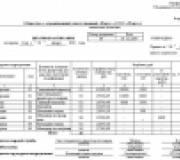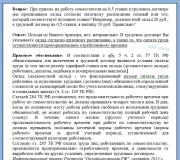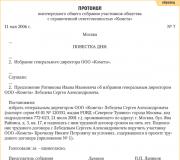Maikov A.N. (Brief biography)
Apollo Nikolaevich Maikov was born in the city of Moscow, into a family of hereditary nobles in 1821. Several previous generations of this family were closely associated with art; this fact ultimately influenced his worldview and contributed to the development of creative talents. In 1834, the parents of the future poet moved with their children to St. Petersburg. It was there that Apollon Maykov will receive a legal education, which will help him succeed as a civil servant.
Maykov's development as a writer began in 1842. Then he publishes his first book, from which he goes on a trip around the world. Having visited several countries, he returned to St. Petersburg in 1844 and began writing his dissertation. The chosen topic (ancient Slavic law) will later be clearly visible in some of the author’s works.
Track record

Throughout his life, Apollon Nikolaevich is actively building a career. Having proven himself well during his service in the Ministry of Finance, in 1867 he was appointed state councilor. Nine years later he was appointed to the honorary position of senior censor. In 1897, he was confirmed as the current chairman of the Central Committee of Foreign Censorship.
In parallel with his main job, he is a member of literary communities, actively writes for newspapers and magazines, and is a member of the commission involved in organizing public readings in St. Petersburg.
Creation
The early debut of thirteen-year-old Apollon Nikolaevich was the poem “Eagle,” which was published in 1835 in the “Library for Reading.” However, the first serious publications are considered to be “Picture” and “Dream”, which appeared five years later in the “Odessa Almanac”.

Throughout his creative career, the change in the political sentiments of the poet is clearly visible. Liberal views in early works are later replaced by conservative and pan-Slavic ones. For this reason, in the 1860s the author's work was subject to serious criticism. The revolutionary democrats did not like this change of views.
The main theme of creativity is rustic and natural motifs, episodes from the history of their native land. These poems are included in school textbooks and anthologies. Some of them were later set to music by such famous composers as P.I. Tchaikovsky and N.A. Rimsky-Korsakov.

In addition to writing poems and poems, he was known for literary translations. He translated the famous works of Goethe, Heine, and Mickiewicz. He knew several languages, so he could translate from Greek, Spanish, Serbian and so on. In 1870 he completed the translation of “The Tale of Igor’s Campaign”; this work took him four years.
Anna Ivanovna Stemmer became the wife of Apollon Nikolaevich, who gave birth to her husband three sons and one daughter. The poet died on March 20, 1897, after a severe cold that lasted a month. He was buried in the cemetery of the Resurrection Novodevichy Convent.
Apollo Nikolaevich Maikov was born in Moscow on June 4 (May 23, old style) 1821. Apollon Maykov's father, Nikolai Apollonovich Maykov, was a talented artist who achieved the title of academician of painting, and his mother, Evgenia Petrovna, wrote books. The artistic atmosphere of his parents' home contributed to the formation of the spiritual interests of the boy, who began to draw and write poetry early. His literature teacher was the writer I.A. Goncharov. As a twelve-year-old teenager, Maikov was taken to St. Petersburg, where the whole family soon moved.
Almost all family members tried their hand at literature. An idea arose to publish a handwritten magazine, which was called simply and beautifully “Snowdrop”.
Issues of "Snowdrop" were stitched together over the course of a year and decorated with a massive red cover with gold embossing.
In 1837, A. Maikov entered the law faculty of St. Petersburg University. His studies in Roman law aroused in him a deep interest in the ancient world, which later manifested itself in his work. Maikov knew several languages perfectly, including Latin and Ancient Greek.
A.N. Maikov’s debut as a poet took place in 1841. He became a famous poet of his time. Maikov is a word painter, creator of beautiful poems about his native nature. He is the translator of the immortal monument of antiquity "The Tale of Igor's Campaign."
The poet's poems were included in all school anthologies in Russia.
In his declining years, Apollon Nikolaevich acquired a modest dacha in the vicinity of St. Petersburg at the Siverskaya station of the Warsaw Railway. Here, as his contemporaries noted, “he found his honor and his place,” engaging in charitable activities. Thanks to his efforts and efforts, a church, a school and a library-reading room, named after the poet, were built in Siverskaya.
A. N. Maikov is one of the noble poets of conservative romanticism with an ethical and philosophical orientation.
Family education
Apollo Maykov was born in Moscow on May 23, 1821. This was an old noble family that preserved rich cultural traditions. There were talented people in the Maykov family who did a lot in the development of Russian culture, in particular, his parents and brothers. His father, for example, was at one time a famous self-taught artist, who over the years was awarded the title of academician of painting. Mother gravitated toward literature and wrote very high-quality poetry and prose.
The brothers also left their noticeable mark on the development of national culture. His younger brother Valerian, for example, being a prominent representative of the progressive intelligentsia, together with Belinsky, was an opponent of “pure art” and a supporter of socio-historical principles in criticism. He wrote many works in which he opposed the Slavophiles, calling them adherents of national stagnation, and in general played a large role in the development of critical thought in Russia.
The Moscow house and the Maykovs' estate near Moscow were always full of people. Writers, artists, and musicians often visited here. The visits of I. A. Goncharov, I. I. Panaev, V. G. Benediktov, V. A. Solonitsyn, and F. M. Dostoevsky were a real holiday in the Maykovs’ house. The cult of art reigning in the family, the artistic atmosphere of the parental home - everything contributed to the formation of the spiritual interests of the future poet. Therefore, it is not surprising that Apollo was drawn to art from early childhood, read a lot, drew well and wrote lyrical poetry.
The house published the handwritten magazine “Snowdrop” and the almanac “Moonlit Nights”, where the whole family, and sometimes guests, published their works. Apollo's children's poems first appeared in these family publications.
Education. First collection
In 1834, the family left Moscow and settled in St. Petersburg. From then on, the further fate of the poet Apollo Maykov was connected with the northern capital, except for those years, of course, when he traveled. From 1837 to 1841 he studied at St. Petersburg University at the Faculty of Law. But he did not give up literary studies. After graduating from the university, Maikov entered the service of the State Treasury Department, and a year later he published his first collection of poems, which was praised by the famous literary critic V. G. Belinsky. He wrote that Maykov's poetry is always a picture that shines with the true features and colors of nature. The collection was also a success among readers.
Travel abroad
Emperor Nicholas the First gave Maykov an allowance, which allowed the poet to make a long trip abroad. First he went to Italy, where he visited many cities, visited museums and exhibitions, studied painting and, as before, poetry. Then there was Paris, where Maikov listened to a series of lectures on art and world literature. Traveling around Europe, the poet visited Dresden, Prague and other cities with the same goal - to become better acquainted with world culture.
Back home
In 1844 Apollo Maikov returned to Russia. He got a job at the Rumyantsev Museum as an assistant librarian. He wrote a lot and prepared for publication his second collection of poetry, “Essays on Rome,” dedicated to his impressions of a trip to Italy (1847). During these same years, Maikov became close to many famous writers: Belinsky, Turgenev, Nekrasov, Dostoevsky, Pleshcheev, and regularly attended “Fridays” in M. Petrashevsky’s circle. He did not fully share many of their ideas, but they still had a certain influence on his poetic work. This is evidenced by the appearance of the poems “Two Fates”, “Mashenka”, “The Young Lady” (1845 - 1846), which, unlike his previous poems, contained civic motives.
Ideological orientation
In 1852, Maikov became a censor on the staff of the Committee of Foreign Censorship and remained in this department position for more than forty years. During these years, the ideas of the Slavophiles became close to him. Disillusioned with liberals and radicals, he reconsidered his positions and, as a result, came to defend strong monarchical power and the Orthodox faith. The fact that Maikov consistently occupied conservative positions is evidenced by his poem “Clermont Cathedral” (1853), as well as the cycles of poems “Neapolitan Album” and “Modern Greek Songs” (1858), written under the influence of a trip to Greece.
Maikov greeted the peasant reform to abolish serfdom (1861) with enthusiastic, optimistic poems “Fields” and “Niva”. Gradually, the poet finally contrasted his position regarding art with the positions of revolutionary democrats and became an adherent of “pure art.” This transformation was sharply criticized by Saltykov-Shchedrin and Dobrolyubov in their satirical parodies.
Slavic theme
For a long time, Maikov was fascinated by antiquity, its harmonic art, and sought to express in his lyrics some imaginary world of beauty, far from the contradictions of the surrounding life. But over time, Slavophile views were added to this. Based on ancient motifs, the philosophical and lyrical drama “Two Worlds” was written, for which the Academy of Sciences awarded Maykov the Pushkin Prize (1882). The emerging interest in Christianity and Slavic folklore prompted the poet to work on a translation of “The Tale of Igor’s Campaign.” His treatment of the great work of the era of Ancient Rus' is one of the best.
Landscape lyrics
But Maikov’s talent in landscape themes was especially evident. The nature of his native land always worried the poet. For him, each landscape painting is full of beauty, natural harmony, a feeling of kinship and special warmth. He saw incredible creative powers in nature. He was worried about very ordinary phenomena, familiar to everyone: the onset of spring, the withering of autumn, the flight of a swallow, summer rain. His poems about Russian nature have sincerity, watercolor subtlety of colors, melodiousness, and keen observation.
Among the best poems of Maykov’s landscape lyricism are “Haymaking”, “Swallows”, “Spring”, “Autumn”, “Summer Rain”. Many of Maykov's poems once inspired some great composers to create romances (Tchaikovsky, Rimsky-Korsakov and others). But unlike the landscape lyrics of A. Fet, Maykov’s poems are not distinguished by that sophisticated “psychologism” for which the outstanding lyricist Fet became famous.
In 1893, the sixth collected works of Maykov was published in three volumes, the last lifetime edition for sixty years of his literary activity. Apollo Maikov died on March 8, 1897 in St. Petersburg.
Maikov Apollon Nikolaevich (1821-1897), poet.
Graduated from the Faculty of Law of St. Petersburg University. Maykov’s first book of poems was published in 1842. Then the poems “Two Fates” (1844) and “Mashenka” (1846), a collection of lyrics “Essays on Rome” (1847), were published, reflecting the impressions of a trip to Italy .
In 1848-1852. The poet's activity decreased noticeably.
The Crimean War, which began in 1853, again awakened him to intensive creative activity (the result was the book “1854. Poems”).
In poems of the late 50-60s. Maikov tried to critically assess the surrounding reality (“Whirlwind”, 1856; “He and She”, 1857; poem “Dreams”, 1856-1858; collection “Neapolitan Album”, 1858-1860; poems “ Fields", 1861, "To my friend Ilya Ilyich", 1863, "On the white sandbank of the Caspian Sea...", 1863, etc.). During these same years, he translated a lot from modern Greek folk poetry, imbued with the spirit of the struggle for independence.
A number of translations from Serbian youth songs were also dictated by a sympathetic attitude towards the national liberation movement (for example, “Saber of Tsar Vukashin”, “Serbian Church”, “Radojca”, “Horse”). From here the poet to the period of the Tatar invasion of Rus' and the struggle with nomads (“In Gorodets in 1263”, “Clermont Cathedral”).
In 1870, Maykov’s translation of “The Tale of Igor’s Campaign” was published - the result of an intense four-year work.
In 1875, Maikov wrote the poem “Emshan” - an adaptation of one of the legends of the Ipatiev Chronicle. The poet had an enduring interest in the era of the clash between paganism and Christianity (“Olynthos and Esther”, “Three Deaths”, the tragedy “Two Worlds”, etc.).
Despite the genre and thematic richness, Maykov’s poetic heritage is uniform in style. Maykov's poetry captivates with its harmonic fusion
thoughts and feelings, impeccable artistic taste, melodiousness and musicality. It is no coincidence that in terms of the number of poems set to music, Apollon Nikolaevich holds one of the first places among Russian poets of the 19th century.
Maikov Apollon Nikolaevich is a famous Russian poet. He lived in the 19th century (1821-1897). The creative heritage of this poet is of interest in our time, which speaks of his undoubted talent.
Origin of A. N. Maykov
It should be said that Apollo Maykov was not the only talented representative of his family. The ancient family of the poet was rich in talented people. In the 15th century, the famous Russian theologian Nil Sorsky lived, and during the time of Catherine, the poet Vasily Maikov worked.
The father of our hero was an academician of painting. The rest of his family also belonged to the creative intelligentsia. His mother is a translator and poet, his brother Valerian is a publicist and literary critic, and Leonidas, Apollo's other brother, is a publisher and literary historian.
Childhood and youth, first book of poems
Apollon Nikolaevich spent his childhood on an estate that belonged to his father. It was located near the Trinity-Sergius Lavra. The Maykov family moved to St. Petersburg in 1834. As a child, Apollo was interested in both literature and painting. However, myopia prevented him from following in his father's footsteps. In Maikov's first prose experiments, the influence of Gogol is visible. Then Apollon Maikov became interested in poetry. His biography of this period is also marked by his studies at St. Petersburg University, Faculty of Law. After graduating from university, Apollon Nikolaevich published the first book of his poems. This important event occurred in 1842.
Trip abroad, new poems
In the same year, Apollo Maykov went abroad. Here he stayed for about two years. Maikov listened to lectures by famous scientists in Paris. While in Rome, he took part in the revelry of Russian artists, wrote poetry, made sketches, and went on horseback rides through the Roman valley. The result of the impressions received was Maykov’s poetic cycle “Essays on Rome” (published in 1847). It was during his life in Italy that the first breakdown occurred in the poet’s work. Apollo Maykov broke with anthological poetry and began to strive for the so-called poetry of thought and feeling. Maykov was no longer interested in the old man. He decided to turn to modern times. As a result, portraits of the inhabitants of Rome appeared (Lorenzo, "Capucin", "Beggar").
Return to homeland
Returning to his homeland, the poet began working at the Rumyantsev Museum as an assistant librarian. In the second half of the 1840s, his circle of friends included Nekrasov, Grigorovich, Turgenev, Belinsky. Apollo Maikov was at that time influenced by the natural school. The poet published a lot in Otechestvennye zapiski. In Nekrasov's "Petersburg Collection" in 1846 his poem "Mashenka" appeared. A little earlier, another poem was created, “Two Fates,” which tells the story of an “extra” person.
Communication with the Petrashevites and the editorial office of Moskvityanin
Apollon Nikolaevich in those years was ideologically close to Westernism. He became involved in the Petrashevtsy movement through his brother Valerian. However, he soon began to become depressed by their constant criticism of the government. Maikov saw utopianism in the Petrashevite movement, “a lot of egoism,” “a lot of nonsense” and “little love.”
Apollon Nikolaevich, who was going through a crisis, ended up in the editorial office of Moskvityanin. Here he unexpectedly found not only participation, but also support for his views. Maikov denied the principles of Western European civilization. This idea ran through his entire collection “1854,” which accurately reflected Maikov’s worldview at that time. Another cross-cutting theme of the book was the historical mission of the Russian state, which blocked the path to the West for Batu’s hordes and thereby prevented the death of the civilization of Europe (“Clermont Council”, etc.). At the same time, Maikov became a convinced monarchist. He believed in the greatness of Nicholas I.
Creativity of the 1850s

As happens with every real poet, Maykov’s work of the 1850s is much broader than his ideological principles. He created works on social themes (the idyll “Fool”, the cycle “Everyday Thoughts”), and poems of an ideological and political nature. At the same time, Maykov wrote poems that continued the anthological and aesthetic principles of his poetry of the early period. We are talking about such cycles as “Cameos” and “Fantasies”. At the end of 1850 The cycles “At Home”, “In the Wild”, “In the Rain”, “Spring”, “Haymaking” appeared. In these works one can still feel Maikov's former harmonic view of nature. However, now he manifests himself in sketches of rural landscapes of Russia.
"Autumn"

In 1856, Apollo Maikov created one of the most famous poems. "Autumn" - that's what he called it. From a young age, the poet was fond of hunting, but often caught himself thinking that an ordinary walk in the forest without a gun gave him much more pleasure. He really loved to rake the leaves with his foot, to hear the cracking of the branches... However, the forest in the fall loses its mystery and enigma, since “the last flower has been tied,” “the last nut has been picked.” And this world gives birth to hitherto unknown feelings in the poet...
Marine expedition
The Italian theme reappeared in the works of Apollon Nikolaevich in 1859. This was due to the fact that he, together with other researchers, made a sea expedition, visiting the islands of the Greek archipelago. The ship on which the voyage was carried out did not reach Greece. He had to stay in Naples. Therefore, instead of one cycle, as Apollon Nikolaevich Maikov intended, it turned out to be two. The "Neapolitan Album" was created based on Italian impressions. This is a kind of story in verse, the theme of which is the life of the people in Naples. As a result of the study of the culture and history of Greece, “Modern Greek Songs” appeared (“The Swallow Has Rushed”, “Lullaby”, etc.).
One of his most famous poems is “Lullaby...”. Apollo Maikov created this work in 1860. More than 20 composers wrote music for it at one time. Among them are A. Chesnokov, A. Arensky, V. Rebikov, P. Tchaikovsky.
Last years of life

In the last 25 years of his life, Maykov was interested in eternal questions of existence. He thought about the development of civilizations. An important place in Maykov’s thoughts at this time was occupied by the fate of our country, its past and present, its role in history. In the 1880s, Apollon Nikolaevich also created a number of poems, distinguished by deep religiosity and the idea that religious humility is a distinctive feature of the Russian person (“The eternal night is approaching...”, “Leave, leave!..”, etc.).
In conclusion

Merezhkovsky in his book “Eternal Companions” wrote that Maykov Apollo is a poet whose life path was bright and smooth. There was no persecution, no enemies, no passions, no struggle in him. There were poems, books, travel, family joys, fame. Indeed, his biography was not very poetic: he did not die on the scaffold or in a duel, was not persecuted, and was not tormented by passions. For Apollo Maykov, everything external went inside. His real biography, his true destiny was his path from the Romans and Greeks to Russian reality, the history of peoples, the poetry of the Bible and the eternal questions of existence.




